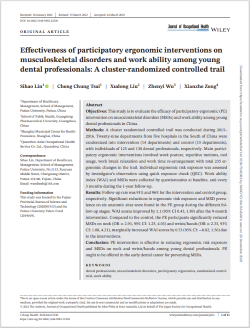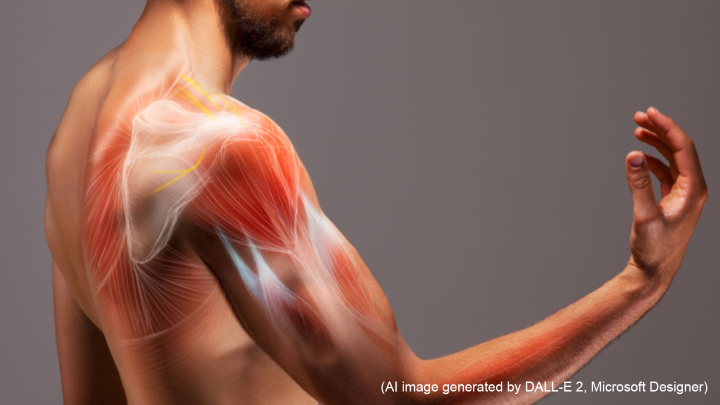#0144 Effectiveness of participatory ergonomic interventions on musculoskeletal disorders and work ability among young dental professionals: A cluster-randomized controlled trail

Improve Posture, Work Better? Changing Work Habits May Prevent Musculoskeletal Disorders in Young Dental Professionals
Dentists face significant physical stress while working due to awkward positions, over strained necks, continuous rotation and bending of wrists and long hours of static posture. As a result, an increasing number of dental professionals worldwide are being affected by musculoskeletal disorders (MSDs), conditions that affect muscles, bones, and joints. MSDs can set in as early as student or internship days and may result in low productivity, disability, and even early retirement, in the long run.
Participatory ergonomic (PE) interventions—modifications in work habits and environment, have been a promising strategy in preventing MSDs. However, the effects of PE on work ability remain unclear.
In a recent study, scientists from China conducted a clinical trial among young dental professionals to assess the efficacy of PE interventions on ergonomic risk (workplace conditions affecting mind and body), MSDs, and work ability for a period of one year.
29 departments from five dental hospitals participated. Of these, 14 departments with 125 dental professionals were randomly allotted to the intervention category, whereas 15 departments with 138 professionals made up the control group.
The main PE interventions applied were work posture adjustments, reduced repetitive movements, proper tool usage, work break relaxation, and work time re-arrangement. The researchers used in person observations and specific questionnaires to evaluate ergonomic risk, MSD symptoms, and work ability index (WAI) among the participants, at baseline (starting reference point), 3-months, 6-months, and 12-months.
They observed that ergonomic risk exposure and MSD prevalence significantly reduced in the PE group, whereas not much change was observed in the control group. Moreover, nine months of PE changes improved WAI scores by 1.1. Interestingly, PE interventions further contributed to a significant reduction of MSD occurrence on the neck, wrists, and/or hands of the participants. However, further studies are needed to confirm whether PEs can improve long-term work productivity.
In summary, the study suggested that PEs should be offered to professionals at the beginning of their dental career to improve work ability and reduce the risk of developing MSDs.

Link to original journal article:
https://academic.oup.com/joh/article/64/1/e12330/7249369
Title of the paper:
Effectiveness of participatory ergonomic interventions on musculoskeletal disorders and work ability among young dental professionals: A cluster-randomized controlled trail
Authors:
Sihao Lin, Cheng Chung Tsai, Xudong Liu, Zhenyi Wu, Xianzhe Zeng




